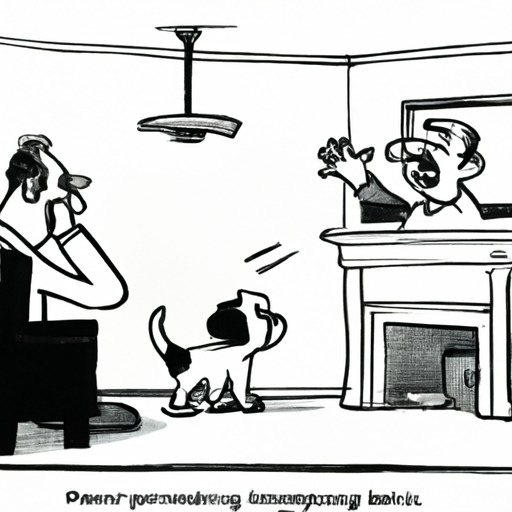You’ve brought home your new bundle of joy. A small, furry, four-legged creature that has instantly filled your home with love. But there’s a little problem, your puppy won’t stop barking. As a caregiver, it’s natural for you to be concerned and looking for solutions. This guide will help you understand why your puppy might be barking and how you can help them.
1. Understanding Why Puppies Bark
Just like humans use words, puppies use barks to communicate. Here are a few common reasons:
-
Boredom: Puppies have lots of energy and if it’s not channeled properly, they may resort to barking.
-
Separation Anxiety: Puppies can feel anxious when left alone, leading to excessive barking.
-
Hunger or Thirst: Your puppy might be telling you they need something.
-
Fear or Distress: Scary noises or unfamiliar environments can trigger barking.
2. Training Your Puppy to Stop Barking
Training is crucial in helping your puppy understand when it’s okay to bark and when it’s not. Here are some steps:
- Identify the Trigger: Observe what is causing your puppy to bark excessively.
- Distract and Redirect: Use toys or treats to distract your puppy from the trigger.
- Use Commands: Teach your puppy a quiet command like “Quiet” or “Enough”.
- Reward Silence: Once your puppy stops barking, reward them with a treat or affection.
- Be Consistent: Consistency is key in training. Make sure to repeat these steps regularly.
3. Ensuring Your Puppy’s Needs are Met
Meeting your puppy’s basic needs can significantly reduce unnecessary barking. Ensure:
- They have regular access to fresh water and nutritious food.
- They are getting enough exercise and mental stimulation.
- They have a comfortable, quiet place to sleep.
- They are not left alone for prolonged periods.
4. Seeking Professional Help
If your puppy’s barking is persistent and you’re struggling to manage it, it may be time to seek professional help. A professional dog trainer or a behaviorist can provide you with specific strategies tailored to your puppy’s needs.
5. The Role of Socialization in Reducing Barking
Socializing your puppy with other dogs and people can help them become more comfortable in different situations, reducing stress-related barking. Some tips:
- Start socializing your puppy at a young age.
- Gradually expose them to different people, environments, and animals.
- Reward your puppy for calm behavior during these experiences.
| Socialization Tips | Description |
|---|---|
| Start Early | The earlier you start, the better. |
| Go Slow | Don’t rush the process. |
| Positive Experiences | Ensure each encounter is positive. |
6. Understanding Breed-Specific Barking
Certain breeds are more prone to barking than others. Understanding your puppy’s breed can help you devise an effective training strategy.
7. The Importance of Patience
Remember, training a puppy takes time and patience. It’s important to stay calm and understanding during the process. Your puppy is just trying to communicate in the only way they know how.
8. FAQ: Puppy Won’t Stop Barking
Q: How long will it take for my puppy to stop barking excessively?
A: Each puppy is unique, so there’s no set timeline. Consistency in training is key.
Q: Are certain breeds more prone to barking?
A: Yes, some breeds are naturally more vocal than others. Researching your breed can be helpful.
Q: When should I seek professional help?
A: If your puppy’s barking is causing distress or if you’re unable to manage it despite consistent training, it might be time to seek professional help.
Remember, a barking puppy is not a bad puppy. They’re just trying to communicate. With understanding, patience, and effective training, you can help guide your puppy towards healthier communication habits.



